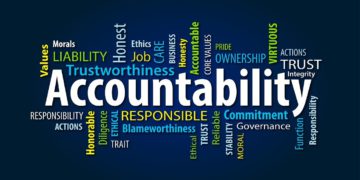The Harvard Business Review posted an insightful article in February, “The 3 Elements of Trust” (https://hbr.org/2019/02/the-3-elements-of-trust) by Jack Zenger and Joseph Folkman.
Their study found that the level of trust people have in a business leader is highly correlated with how others rate a leader’s overall effectiveness, and they were able to identify the three most important elements that generate trust.
Looking at data from 360 assessments of 87,000 leaders, they determined that the majority of the variability in trust ratings depended on:
- Positive relationships
- Good judgement/expertise
- Consistency
If the leader scored at or above the 60th percentile on all three of these factors, their overall trust score was at the 80th percentile.
Looking further at the data, they had expected to find that consistency might be the single most influential factor in generating trust, but it turned out that positive relationships topped the list.
This aligns with what I’ve seen in my work with leaders. Many who made poor decisions or major miss-steps were able to weather the storm, in some cases with relative ease, because they had a reservoir of trust founded on strong relationships.
Their superiors, direct reports, and other stakeholders were willing to look beyond this immediate mistake, viewing it as a lapse that was unlikely to recur or that the individual could take certain steps to avoid in the future.
Likewise, I’ve also seen the critical role relationships play in building trust between me and the leaders I coach. If the coaching process hits a rough patch, the leader’s trust in me can be sustained or regained fairly quickly when the relationship is strong.

































